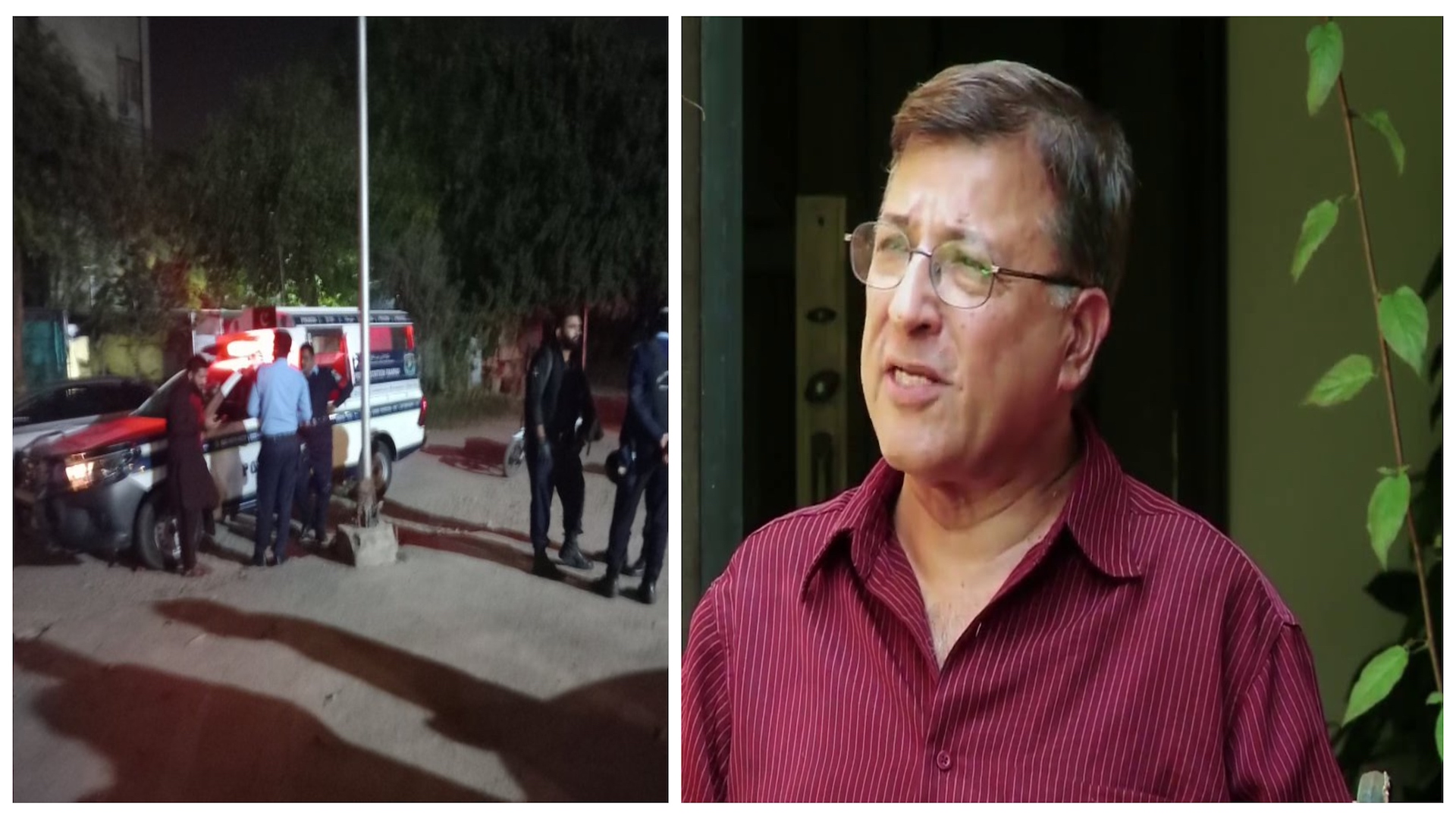The police in Islamabad forcibly stopped a panel discussion on the issue of deportation of Afghan refugees at a community center ‘The Black Hole’ in the G-11 sector. The police team, headed by Station House Officer (SHO) Alamgir Khan, reportedly raided the center just before the talk was about to begin.
Former senator Afrasiab Khattak and researcher Sajjad Azhar were scheduled to discuss the forced deportation of Afghan refugees from Pakistan at the event. The SHO instructed the organisers to cancel the discussion, citing the deputy commissioner’s orders.
Pervez Hoodbhoy rejects police’s version:
Academic Pervez Hoodbhoy, who is the founder of the Black Hole, told Dissent Today that the policemen locked up the center’s operations manager and confiscated his phone. “They returned the phone after the event was cancelled,” Hoodbhoy said. He confirmed the reports that the employee was manhandled by the police.
However, when some news reporters with equipment arrived, the police withdrew and departed from the scene. The Senior Superintendent of Police (SSP) reportedly warned a high-ranking member of The Black Hole of “dire consequences” before leaving.
The SHO later told media that the police stopped the talk because the management did not have a no objection certificate (NOC). But Pervez Hoodbhoy says that never before had there been a demand to get an NOC for any kind of event at the center.
“Our aim was to simply discuss the forcible repatriation of Afghan refugees. It is the kind of issue which can be debated in any civilized society,” he told Dissent Today.
Earlier, Afrasiab Khattak tweeted about the police’s action, saying that the speakers and the hall were kept “under siege” by the police for 2 hours.
Meanwhile, Human Rights Commission of Pakistan (HRCP) condemned the incident in a statement, terming it “appalling.”
“This was in clear violation of the panelists’ right to freedom of expression and peaceful assembly. Such tactics are also an alarming indicator of the government’s unwillingness to acknowledge that it is bound by customary international law to protect vulnerable refugees,” the HRCP said in a post on X (formerly Twitter).


